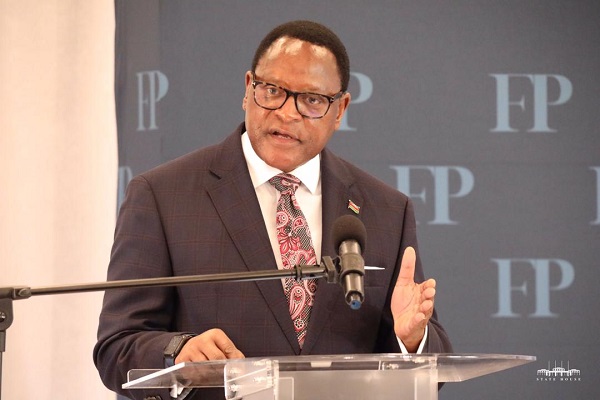Malawi President Lazarus Chakwera yesterday addressed the Strategic Dialogue on Health where he was excited to be part of the dialogue.
“We all know that climate change is no longer a distant threat. But the fact is that the impact of climate change is more pronounced in developing countries like Malawi, which are not sufficiently resilient to climate shocks, especially in the health sector,” said Chakwera.
On the Climate Change Index, Chakwera said that Malawi is characterized as one of the most vulnerable nations. The Malawi leader recounted that since 1946, Malawi has experienced major droughts and floods, and more than 600 disaster events.
“From 1980, there has been an increased frequency of extreme weather 3 events and disasters in my country. For instance, since 2022, Malawi has been hit by Tropical Cyclones Anna, Gombe and Freddy. The latter that hit the country early this year, was the worst ever in the history of the country, causing the most devastating health impacts, apart from other forms of destruction. More than 2.2 million people were directly affected, out of which 659,278 were displaced, 679 were confirmed dead, 537 are still missing and 2,178 were injured. The increased occurrence of natural calamities and disasters contribute to the worsening of people’s health status, economic and social welfare, loss of life and damaging of health infrastructure.
“Globally, the impacts of climate change on health systems are clear. They include: increased incidences of climate sensitive diseases; disruption of a continuum of care for the chronically-and terminally-ill people; loss of medical supplies and a breakdown of cold chain as well as loss and damage of health infrastructure and water, sanitation and hygiene (WASH) facilities in communities. ´said Chakwera.
During his remarks, Chakwera said addressing these threats requires the need to act with urgency, and collectively.
“We must prioritize the well-being of our communities and ensure that our adaptation strategies are equitable, leaving no one behind, in addressing the threat of our existence. We need to develop short-term and long-term goals. In the short-term, we must strengthen our preparedness and response mechanisms to climate-related health emergencies. This includes improving Early Warning Alert and Response Systems; enhancing resilience in healthcare infrastructure; strengthening capacity-building efforts at the community level; and amplifying the voice of children and women in climate action,” he said.













